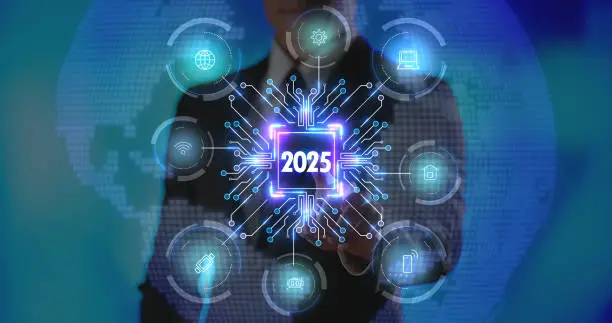Introduction to IT Skills Landscape in 2025
The world of technology moves at lightning speed, and keeping up with the right IT skills is like surfing the biggest wave of your career. By 2025, the demand for specific tech skills will skyrocket as companies race to innovate and protect their digital assets. But why exactly are IT skills so crucial now more than ever? Well, with rapid digital transformation happening across industries, businesses need experts who can handle complex systems, secure data, and leverage cutting-edge technologies to stay competitive.
Technology trends such as cloud computing, AI, and cybersecurity are shaping the future workforce. Staying ahead means understanding which skills are hot and where the industry is heading. Let’s dive into the top IT skills you’ll want to master if you want to be a star in the tech universe come 2025.
Cloud Computing Skills
Cloud computing continues to dominate the IT scene. Giants like Amazon Web Services (AWS), Microsoft Azure, and Google Cloud have become the backbone of modern infrastructure. Businesses prefer cloud for its flexibility, scalability, and cost-efficiency.
- Popular Cloud Platforms: AWS leads the pack with over 30% market share, but Azure and Google Cloud are catching up fast. Knowing how to deploy, manage, and optimize these platforms is a must.
- Cloud Security and Cost Management: Cloud isn’t just about storage; it requires expertise in securing resources and optimizing costs. Skills like identity management, encryption, and budgeting are highly sought after.
Cybersecurity Expertise
In 2025, cyber threats will be more sophisticated than ever. Cybersecurity isn’t just for the security team; it’s an essential skill set across IT roles.
- Rising Cyber Threats: From ransomware to supply chain attacks, the threats evolve constantly. Professionals skilled in threat detection, response, and mitigation are in high demand.
- Key Certifications: Certifications like CISSP, CEH, and CompTIA Security+ remain valuable badges for cybersecurity experts.
Artificial Intelligence and Machine Learning
AI and ML are no longer futuristic concepts; they are embedded in everyday business tools and processes.
- AI Applications: From chatbots to predictive analytics, AI powers smarter decisions and automates routine tasks.
- Tools and Frameworks: Familiarity with TensorFlow, PyTorch, and scikit-learn is crucial for those looking to dive deep into AI development.
Data Science and Analytics
Data is the new oil, and data science skills are the refinery.
- Big Data Role: Companies rely on data-driven insights to make critical decisions. Skills in processing large datasets, cleaning data, and drawing actionable conclusions are vital.
- Data Visualization: Tools like Tableau, Power BI, and Looker help translate complex data into understandable stories for stakeholders.
DevOps and Automation
The DevOps movement bridges the gap between development and operations, emphasizing speed and reliability.
- DevOps Culture: Collaboration, continuous integration, and delivery pipelines are the core.
- Popular Tools: Mastering Jenkins, Docker, Kubernetes, and Terraform helps automate deployments and scale applications seamlessly.
Software Development Skills
Writing code is still king, but which languages and methodologies are leading the charge?
- Trending Programming Languages: Python remains a favorite for AI and data science, while JavaScript, TypeScript, and Go gain ground in web and backend development.
- Agile and Scrum: Agile frameworks help teams stay flexible and productive. Understanding Scrum ceremonies, sprint planning, and retrospectives is essential.
Blockchain Technology
Beyond Bitcoin and crypto, blockchain is disrupting industries from finance to supply chain.
- Use Cases Beyond Cryptocurrency: Smart contracts, decentralized finance (DeFi), and secure record-keeping.
- Skills Needed: Knowledge of Ethereum, Solidity programming, and Hyperledger Fabric will open doors to blockchain roles.
Internet of Things (IoT)
The world is becoming increasingly connected through IoT devices.
- Growth of Connected Devices: Smart homes, wearables, and industrial IoT require robust networks and real-time data processing.
- IoT Security: Securing these devices against hacks is a growing concern, making IoT security skills highly valuable.
Quantum Computing Basics
While still emerging, quantum computing promises to revolutionize IT.
- What Quantum Computing Means: It uses quantum bits to solve complex problems faster than classical computers.
- Early Skills: Familiarity with quantum algorithms and platforms like IBM Quantum Experience can position you ahead in this niche field.
UX/UI Design Skills
User experience can make or break digital products.
- User-Centered Design Principles: Understanding user needs and behavior leads to better interfaces.
- Tools and Techniques: Proficiency in Figma, Sketch, and Adobe XD is crucial for UI/UX designers.
Soft Skills for IT Professionals
Technical prowess alone won’t cut it anymore.
- Communication and Collaboration: Being able to explain technical concepts to non-tech stakeholders is a superpower.
- Problem-Solving and Adaptability: IT environments are fast-changing. You need to be a flexible thinker who thrives on challenges.
How to Stay Updated with IT Skill Trends
The learning journey never stops in IT.
- Online Courses and Certifications: Platforms like Coursera, Udemy, and LinkedIn Learning offer up-to-date courses.
- Industry Leaders and Communities: Following experts on Twitter, joining GitHub projects, or attending tech meetups keeps you connected and informed.
Conclusion: Preparing for the Future IT Job Market
The IT landscape of 2025 is dynamic and full of opportunity—if you equip yourself with the right skills. Whether you’re a coder, a security analyst, or a designer, focusing on these in-demand areas will help you stay relevant and advance your career. Remember, it’s not just about hard skills; soft skills and continuous learning are your best allies on this exciting journey.
FAQs
Q1: What are the top IT skills for 2025?
A: Cloud computing, cybersecurity, AI/ML, data science, DevOps, blockchain, and IoT are among the top skills.
Q2: How can I start learning cloud computing?
A: Begin with free resources and certification courses from AWS, Azure, or Google Cloud. Hands-on labs and projects are crucial.
Q3: Which programming languages will be most valuable?
A: Python, JavaScript, TypeScript, and Go are expected to be highly valuable due to their versatility.
Q4: Is cybersecurity a good career choice in 2025?
A: Absolutely. As cyber threats increase, the demand for cybersecurity professionals continues to grow exponentially.
Q5: How important are soft skills in IT jobs?
A: Very important! Communication, teamwork, and adaptability help you navigate complex projects and collaborate effectively.

